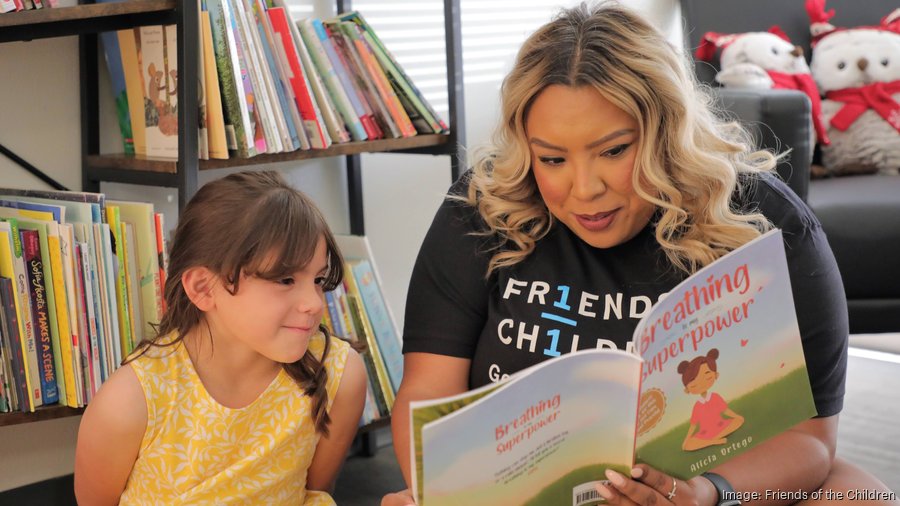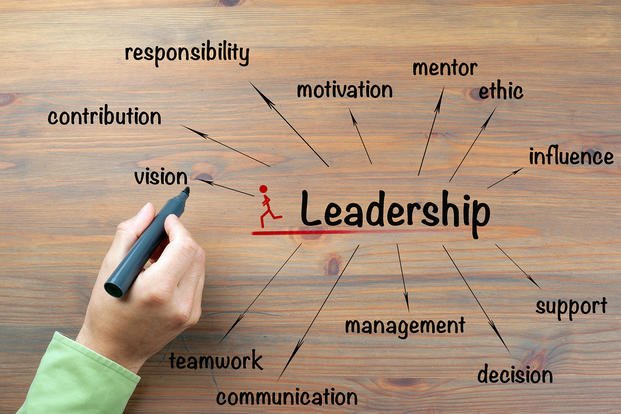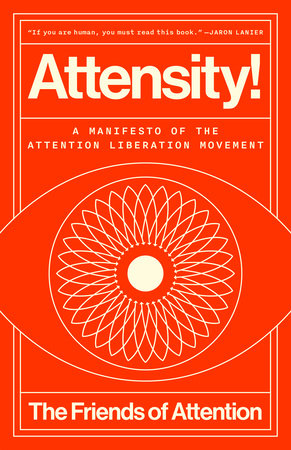
Beyond the Page: How Strategic Reading Cultivates Leadership and Cognitive Resilience
In an age defined by fleeting digital notifications and an endless stream of bite-sized information, the act of deep, focused reading has become both a rarity and a superpower. While many of the world’s most successful leaders, from Warren Buffett to Bill Gates, famously dedicate significant portions of their day to reading, this practice is often viewed as a luxury rather than a necessity. However, mounting evidence from neuroscience and organizational psychology suggests that strategic reading is not merely a pleasant hobby; it is a foundational discipline for enhancing cognitive function, fostering emotional intelligence, and building resilient leadership. This article moves beyond the simple platitude that “reading is good for you” to provide a comprehensive technical framework for leveraging reading as a powerful tool for profound Personal Development and professional excellence. We will explore the cognitive mechanics of reading, strategic frameworks for knowledge acquisition, and actionable methods for cultivating a sustainable reading culture that can transform both individuals and organizations, ultimately contributing to better Mental Health and a more integrated Work-Life Balance.
The Cognitive Architecture of a Reader’s Mind
The profound benefits of reading are not abstract concepts; they are rooted in the brain’s remarkable ability to adapt and rewire itself. Engaging in deep reading is a complex cognitive workout that strengthens neural pathways and enhances mental faculties in ways that passive content consumption, like scrolling through social media, simply cannot replicate. Understanding this neurological impact is the first step toward appreciating reading as a critical component of Health & Wellness.
Neuroplasticity and Deep Reading
When you engage in immersive reading, your brain is doing far more than just decoding symbols on a page. Neurological studies, such as those conducted at Emory University, have shown that reading a compelling narrative can increase connectivity in the parts of the brain associated with language and sensory-motor skills. This heightened connectivity can persist for several days after finishing the book, demonstrating a tangible, lasting change in brain function. This process, known as neuroplasticity, is the brain’s ability to reorganize itself by forming new neural connections. Deep reading stimulates this process by demanding sustained focus, critical analysis, and imaginative visualization. It is an act of profound Mindfulness, pulling our attention away from external distractions and into a structured, internal world. This focused state helps reduce cortisol levels, making reading a powerful tool for Stress Management and improving Sleep Health.
From Information to Insight: The Leadership Advantage
For leaders and professionals, the primary benefit of reading lies in its ability to build what investor Charlie Munger calls a “latticework of mental models.” By reading broadly across diverse fields—history, psychology, science, biography, and even fiction—an individual accumulates a rich repository of frameworks for understanding the world. This intellectual toolkit enables better decision-making, as a leader can draw upon multiple models to analyze a complex problem from different angles. For instance, reading about military strategy might offer insights into business competition, while a novel about a family navigating a crisis could deepen a manager’s empathy and understanding of team dynamics, which is invaluable for managing Relationships and providing effective Career Advice. Reading on topics as varied as Sustainable Living, Financial Planning, or Urban Gardening broadens a leader’s perspective, fostering innovation and a deeper understanding of potential Social Impact.

Building Your Intellectual Toolkit: A Framework for Strategic Reading
To truly harness the power of reading, one must move from a passive, haphazard approach to a structured, strategic one. It’s not about the quantity of books finished but the quality of the engagement and the ability to integrate new knowledge. A systematic framework can transform reading from a simple pastime into a high-impact professional development activity, offering some of the best Productivity Tips available.
The Four Tiers of Reading
Philosopher Mortimer Adler, in his classic “How to Read a Book,” outlined four distinct levels of reading that provide a roadmap for deep comprehension. Understanding these tiers is essential for extracting maximum value from any text.
- Elementary Reading: The basic ability to decode text.
- Inspectional Reading: A strategic skimming process to understand a book’s structure, main arguments, and overall value in a short amount of time. This is key to deciding if a book is worth a deeper dive.
- Analytical Reading: The process of thoroughly and systematically engaging with a text to achieve deep understanding. This involves asking questions, identifying keywords, and outlining the author’s logic.
- Syntopical Reading: The most advanced level, where one reads multiple books on the same subject and synthesizes their ideas, forming a new, more nuanced understanding of the topic. A manager tasked with implementing a new Remote Work policy might read five different books on the subject to compare frameworks and identify best practices.
Curating Your Reading Diet
Just as a balanced diet is crucial for physical health, a curated reading list is essential for intellectual vitality. A well-rounded “reading diet” should include a mix of genres and subjects to challenge your assumptions and spark creativity. Consider this structure:
- Your Core Field: Stay current with the latest Investment News, technical journals, or management theories in your industry.
- Shoulder Fields: Explore adjacent disciplines. An architect might read about sociology or Interior Design; a data scientist might explore cognitive psychology.
- Serendipity & Growth: Read far outside your comfort zone. Pick up books on Hobbies like Food & Cooking, explore Travel News and different cultures, or delve into Holistic Health. This cross-pollination of ideas is often the source of breakthrough innovation.
From Solitary Pursuit to Collective Power: Fostering a Reading Culture
While reading is often a solitary act, its benefits are magnified when shared within a community or organization. Transforming an individual habit into a collective culture of learning can drive significant organizational change, improve communication, and foster a more engaged and intelligent workforce. This approach builds a strong sense of Community Living within a professional setting.

The Individual Habit Loop
To build a sustainable reading habit, it helps to engineer your environment and routines. Using the “Cue, Routine, Reward” framework from Charles Duhigg’s “The Power of Habit” is highly effective.
- Cue: Make reading easy and obvious. Leave a book on your nightstand instead of your phone. Designate a comfortable reading chair in your home, a small act of Home Decor that signals it’s time to focus.
- Routine: Start small. Commit to reading just 10 pages a day. The consistency is more important than the volume.
- Reward: The reward can be the intrinsic pleasure of the story, the satisfaction of learning something new, or the simple act of mental Decluttering before bed.
This disciplined approach to personal time is a cornerstone of effective Self-Improvement and work-life integration.
Organizational Implementation: The Guided Reading Circle
One of the most powerful ways to scale the benefits of reading is through structured group discussions, often called guided reading circles or corporate book clubs. This is far more than an informal chat; it’s a strategic tool for capacity-building. When a team—be it an executive council or a project group—reads and discusses the same book, several things happen:
- Shared Vocabulary: The group develops a common language and set of mental models to discuss complex challenges.
- Diverse Perspectives: A single text is interpreted differently by each member, and the ensuing discussion uncovers blind spots and enriches everyone’s understanding.
- Silo Breaking: It brings together individuals from different departments who might not otherwise interact on a substantive level.
A real-world application could involve a municipal government team reading a book on Eco-Friendly Living. The shared knowledge could directly inspire new policies on waste reduction or a community-wide initiative for Volunteering in local parks, leading to tangible Social Impact.
Navigating the Path: Best Practices and Pitfalls to Avoid

Embarking on a journey of strategic reading requires intention and awareness. Simply accumulating books on a shelf is not the goal. Application, retention, and genuine intellectual curiosity are the true measures of success. Here are some best practices and common pitfalls to guide your efforts.
Best Practices for a Sustainable Reading Habit
- Mix Your Mediums: Leverage different formats to fit your lifestyle. Listen to audiobooks during your commute, use an e-reader for travel, and save physical books for deep, focused sessions at home. Modern Technology for Home can make this seamless.
- Schedule Your Reading: Treat reading time with the same respect as a business meeting. Block out 30 minutes in your calendar each day. This discipline is essential for maintaining momentum.
- Quit Books Without Guilt: Life is too short to waste on a book that isn’t providing value or enjoyment. Practice the “50-page rule”: if a book hasn’t hooked you by page 50, move on. This is a form of intellectual Minimalism.
- Take Smart Notes: Don’t just highlight. Write summaries in your own words, connect ideas to your own experiences, and create a system to revisit your notes. This transforms passive reading into active learning.
Common Pitfalls to Avoid
- Reading for Vanity: Choosing books solely to appear intelligent or to keep up with trends, rather than out of genuine interest. This leads to poor retention and little real learning.
- Ignoring Fiction: Many professionals in technical fields dismiss fiction as frivolous. This is a significant mistake. Reading fiction is one of the best ways to develop empathy, understand human motivation, and improve storytelling skills—all critical leadership competencies that impact Parenting Tips and professional relationships alike.
– Information Hoarding: The trap of reading endlessly without ever stopping to think, apply, or share the knowledge. The goal is not to be a human encyclopedia but to convert information into wisdom.
Conclusion
In a world saturated with information yet starved for wisdom, strategic reading stands out as a timeless and indispensable practice. It is far more than a simple hobby; it is a foundational discipline for cognitive enhancement, leadership development, and achieving a more balanced and fulfilling life. By understanding the neuroscience behind deep reading, adopting strategic frameworks for knowledge acquisition, and actively fostering a culture of learning in our communities and workplaces, we can unlock its transformative power. The journey begins not with a grand resolution to read a hundred books, but with the simple, intentional act of opening one. Embracing reading as an active, engaging, and strategic pursuit is the ultimate investment in your own potential, a cornerstone of Holistic Health that pays dividends across every facet of life, from your career to your personal well-being and your capacity for Aging Well.
You may also like
Archives
- February 2026
- January 2026
- December 2025
- November 2025
- October 2025
- September 2025
- August 2025
- July 2025
- June 2025
- May 2025
- April 2025
- March 2025
- February 2025
- January 2024
- October 2023
- September 2023
- August 2023
- July 2023
- June 2023
- May 2023
- April 2023
- March 2023
- February 2023
- January 2023
- December 2022
- November 2022
- October 2022
- September 2022
- August 2022
- June 2022
- May 2022
- April 2022
- March 2022
- January 2022
- December 2021
- November 2021
- October 2021
- August 2021
- November 2020
- July 2020
- May 2020
- April 2020
- March 2020
- August 2018
- July 2018
- June 2018
- April 2018
- March 2018
Categories
- Aftercare Procedures
- Age Groups
- AI/ML
- Alternative Medicine
- Ambient Computing
- Animal Health
- Animal Husbandry
- Animals
- Anti-Aging
- Architectural Design
- Art And Technology
- Auditory Science
- Augmented Reality
- Automation
- Babies
- Baby
- Beauty & Skincare
- Beauty Industry
- Biohacking
- Biomechanics
- Book Reviews
- Breastfeeding
- Budgeting
- Budgeting Strategies
- Business
- Cardiovascular Health
- Career Advice
- Career Development
- Career Growth
- Cats
- Chess
- Chronobeauty
- Circular Economy
- Civic Technology
- Cleaning Tips
- Cloud Computing
- Cognitive Health
- Cognitive Performance
- Cognitive Science
- Community
- Community Building
- Community Engagement
- Community Living
- Computer Vision
- Consumer Guides
- Consumer Trends
- Container Gardening
- Content Analysis
- Content Non-Technical
- Content Strategy
- Cooking Techniques
- Cosmetic Chemistry
- Cultural Events
- Cycling
- Data Analysis
- Data Engineering
- Data Governance
- Data Science
- Database
- Design Psychology
- Design Trends
- Developer Productivity
- Diet
- Diet
- Diet And Nutrition
- Digital Identity
- Digital Media
- Digital Wellbeing
- DIY
- DIY Projects
- Dogs
- Engineering Culture
- Entertainment News
- Environmental Impact
- Environmental Science
- Equity Compensation
- Ethical AI
- Exercise
- Exercise Science
- Exercise Technique
- Exotic Pets
- Fall Gardening
- Family
- Family Health
- Family Life
- Fashion Business
- Fashion Industry
- Fashion News
- Fashion Tech
- Financial Analysis
- Financial Optimization
- Financial Planning
- Flooring Maintenance
- Food
- Food Psychology
- Food Safety
- Food Science
- Food Tech
- Functional Fitness
- Functional Training
- Future Of Work
- Garden Care
- Garden Maintenance
- Gardening Tips
- Geospatial Data
- Gig Economy
- Greece
- Greek
- Greek Food
- Green Technology
- Gymnastics
- Hardware Engineering
- Health
- Health And Wellness
- Health Informatics
- Health Science
- Health Tech
- Health Technology
- Healthcare
- Healthcare Management
- Healthy Eating
- Healthy Recipes
- Holistic Health
- Holistic Wellness
- Home & Living
- Home Decor
- Home Financing
- Home Health
- Home Improvement
- Home Maintenance
- Home Organization
- Home Styling
- Horticulture
- Household Chemistry
- Identity Management
- Indoor Gardening
- Industrial Design
- Industry Analysis
- Infant Nutrition
- Infrastructure Management
- Ingredient Deep Dive
- Integrative Health
- Integrative Medicine
- Interior Design
- Internet of Things
- Internet of Things (IoT)
- Invalid Request
- Investment Strategies
- Investment Strategy
- IoT
- Kids
- Leadership Development
- Learning Strategies
- Lifestyle
- Lifestyle Brands
- Lifestyle News
- Lifestyle Optimization
- Literary Criticism
- Literature
- Logistics Management
- Machine Learning
- Material Science
- Materials Science
- Meal Planning
- Media Analysis
- Meditation
- Mental Health
- Mental Performance
- Mental Wellness
- Miami
- Miami Food
- Mind And Body
- Minimalism
- Mobile Development
- Neuroscience
- No Applicable Categories
- Nursing
- Nutrition
- Nutrition News
- Open Source
- Operating Systems
- Operational Resilience
- Opinion
- Organization Tips
- Outdoor Living
- Over 40
- Over 50
- Over 60
- Parenting
- Parenting
- Parenting Strategies
- Performance
- Performance Optimization
- Personal Development
- Personal Finance
- Personal Growth
- Personal Productivity
- Pet Care
- Pet Safety
- Philosophy
- Plant Care
- Politics
- Product Formulation
- Productivity
- Productivity Engineering
- Protein
- Psychology
- Psychology of Space
- Quantified Self
- Reading Culture
- Real Estate Investment
- Recipes
- Regulatory Compliance
- Remote Work
- Renovation Planning
- Resource Management
- Respiratory Health
- Responsible Pet Ownership
- Retail Strategy
- Retail Technology
- Robotics
- Science
- Seafood
- Seasonal Gardening
- Security
- Sedentary Health
- Self-Care
- Skincare Science
- Skincare Trends
- Sleep
- Sleep Health
- Smart Home
- Smoothies
- Social Impact
- Soft Skills
- Soil Health
- Spatial Computing
- Spatial Design
- Stress Management
- Supplements
- Sustainability
- Sustainability Science
- Sustainable Engineering
- Sustainable Fashion
- Systems Engineering
- Tax Optimization
- Tax Strategy
- Tech Investment
- Technical Writing
- Testing
- Travel
- Travel News
- Travel Safety
- Travel Tips
- Trend Analysis
- Tropical Plants
- Uncategorized
- Urban Gardening
- Urban Planning
- User Experience
- Veggie
- Vietnam
- Virtual Events
- Volunteering
- Wealth Management
- Wearable Technology
- Web Development
- Wellness
- Wellness Technology
- Winter Gardening
- Work-Life Balance
- Workplace Culture
- Workspace Setup
- World
- Writing
- Writing Skills
- Year In Review
- Yoga
- Yoga News
- Zero Waste


Leave a Reply